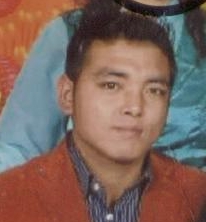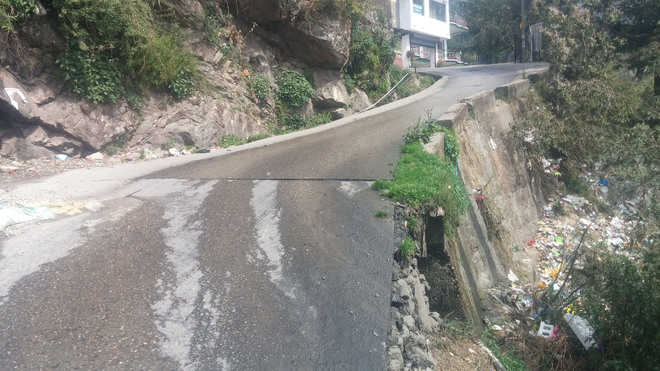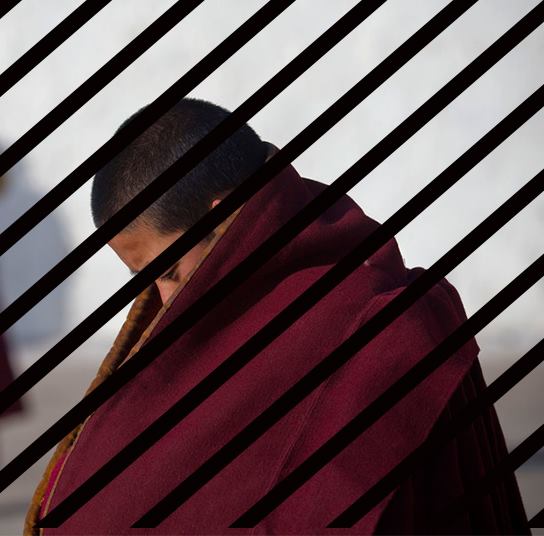Ex Upper TCV student dies two days after release from prison, TCHRD condemns death in detention cases
DHARAMSALA, Dec 6: A former student of Dharamsala-based Upper Tibetan Children’s School serving a 15-year prison term in the infamous Chushur prison near Lhasa city has died on Dec 5, two days after he was released from the prison, Tibetan Centre for Human Rights and Democracy (TCHRD), a rights group based in Dharamsala said today.
The incident, TCHRD said, confirmed criticisms from human rights groups that torture and inhumane treatment is a common practice in Chinese prisons in Tibet.
Tenzin Choedak or Tenchoe, 33 died within hours after he was admitted at Mentsekhang, the traditional Tibetan medical institute in Lhasa city.

After serving nearly six years of his 15-year prison term, when it became imminent that he would die from the injuries sustained from severe beatings and torture during police detention and interrogation, prison authorities released him to his family.
“Early in November, as Tenchoe’s condition deteriorated prison authorities took him to three different hospitals for treatment. After the doctors gave up hope of saving Tenchoe, he was released to his family. He died two days later despite his family’s efforts to save him,” TCHRD cited a reliable source as saying.
“Tenchoe was brought to one of the hospitals with his hands and legs heavily shackled. He was almost unrecognizable,” another source told TCHRD, quoting a local eyewitness.
“His physical condition had deteriorated and he had brain injury in addition to vomiting blood.”
The Intermediate People’s Court in Lhasa sentenced Tenchoe to 15 years’ prison term after the Lhasa City Public Security Bureau (PSB) detained him in April 2008 on the charge that he acted as one of the ringleaders for the March 2008 protest in Lhasa City. The court also imposed a fine of 10,000 Yuan in addition to the lengthy prison term.
“During police detention and interrogation, Tenchoe was severely beaten and tortured. During interrogation, the police focused much of their attention on his father, Mr. Khedup, who had participated in political activities in Tibet for many years until he was compelled to flee Tibet for exile in India in 1993. The interrogators insisted that Tenchoe was working on the instigation of his father,” TCHRD quoted sources as saying.
Born in October 1981 to Khedup and Passang at Gyabum Gang village in northern part of Lhasa, Tenchoe escaped to India in 1990. He studied up to 10th standard at the Upper Tibetan Children’s Village School in Dharamsala in northern India before returning to Lhasa in 2005. Upon his return to Tibet, he joined a European NGO affiliated to the Red Cross and worked on environmental protection projects in Lhasa and Shigatse.
TCHRD today condemned in the strongest terms the growing number of death in detention cases in Tibet and the failure of accountability on the part of the Chinese authorities to investigate these unnatural deaths.
“The death of Tibetan prisoners resulting from their treatment in detention shows efforts by prison authorities to cover up the deaths by releasing the prisoners, thus contributing to a culture of impunity where torture is allowed to flourish,” said Tsering Tsomo, the executive director of TCHRD.
Despite being one of the first member states of United Nations to sign the Convention Against Torture in 1986 and ratify in 1988, The People’s Republic of China (PRC) does not recognize the Committee Against Torture, which is responsible for ensuring the overall implementation of the rights granted by the Convention and also has the authority under article 20 of the Convention to investigate allegations of torture.
“By taking a reservation to article 20 of the Convention, China demonstrates the utter lack of accountability, thus showing irresponsibility as a member of the international community,” TCHRD said.
Months before the meeting of the Intergovernmental Expert Group on the United Nations Standard Minimum Rules for the Treatment of Prisoners (SMR) in January 2014 to consider proposed changes to SMR, the Chinese government opposed to requiring investigations of deaths that occur shortly after a prisoner is released. The January 2014 meeting of the Intergovernmental Expert Group on the SMR in Brazil was postponed indefinitely owing to political turmoil in the host country.
“China understood that including such a requirement would require the PRC to explicitly refuse to follow the rules or require the PRC to investigate the widespread mistreatment of prisoners that it refuses to acknowledge and attempts to hide from the world,” TCHRD said referring to China’s opposition to the revision of SMR.




